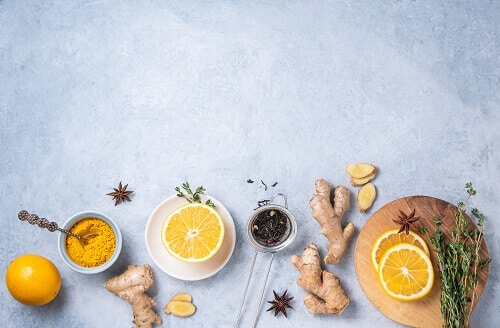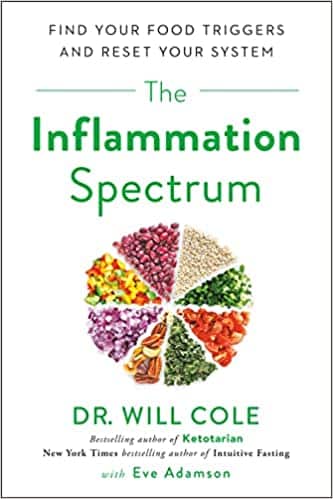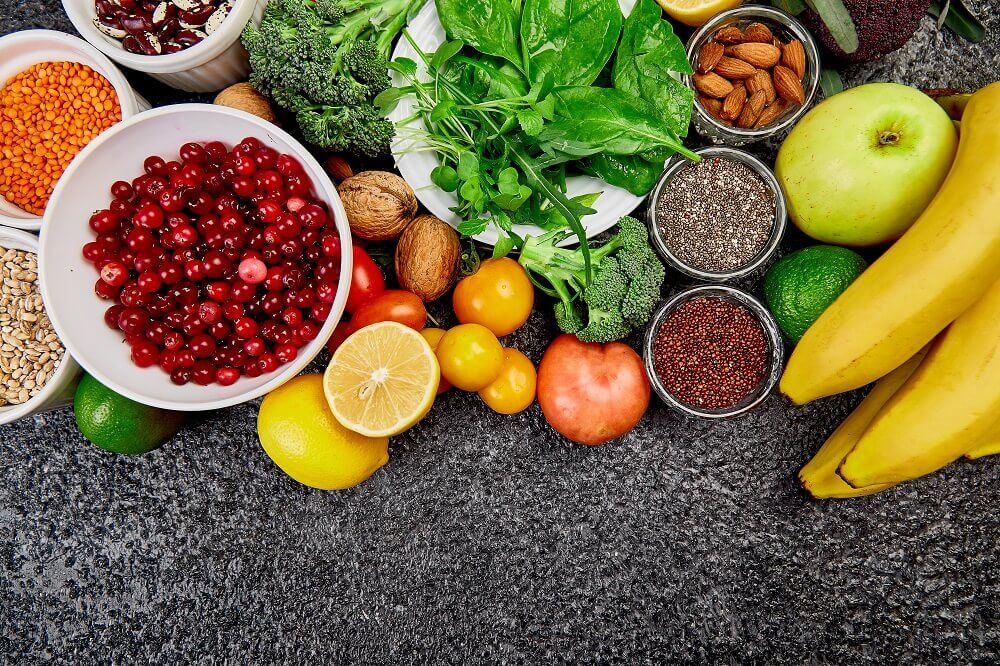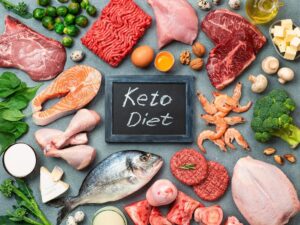Did you know that your gut plays such an important role in how your whole body functions?
Without getting into all of the gory details, let’s just say that your gut flora can either cause or help control inflammation in your body depending on how it’s taken care of.
Summary of the book: You will take an inflammation quiz, so you will know where you experience the inflammation. Then learn about food to eliminate from your diet.
Also, you will learn how to break bad habits and live without them. In the end, you will receive a personalized toolbox for your quiz results.
That being said, choosing the right diet to keep your gut happy and healthy is an important step towards living with less pain, increased energy, and reduced risk of disease.
Here are some tips on how to eat for better gut health and less inflammation.
Find out which ones they are, as well as some other simple lifestyle changes you can make to help combat inflammation and experience better health overall, in this guide on the best diet for inflammation.

What is inflammation?
Inflammation is one of the body’s natural defences against threats like injury or infection. It’s the body’s way of healing itself. But when it becomes chronic, it can wreak havoc on your health.
Chronic inflammation can lead to a host of serious diseases and conditions, including obesity, diabetes, cancer and heart disease. A study from Brigham Young University found that over-the-counter pain relievers, such as ibuprofen, may exacerbate inflammation.
The good news is you don’t have to rely on medication alone. You can use food to help reduce and manage inflammation naturally.

What are the benefits of an anti-inflammatory diet?
There are many benefits of eating an inflammatory diet. In terms of your overall health, an inflammatory diet can help manage conditions like diabetes, arthritis and asthma.
Your immune system also gets a boost from an anti-inflammatory diet and you’re likely to feel more energetic than you would with a standard Westernised diet.
You’ll be less likely to experience negative moods and depression when you’re following an inflammatory diet because it will reduce the production of cortisol, a stress hormone that is linked to these mood disorders.
An inflammatory diet has been found to lower the risk of developing heart disease by as much as 30 per cent. That’s partly because diets rich in omega-3 fatty acids (found in oily fish) may help prevent cardiovascular diseases like atherosclerosis.
One study found that those who followed an inflammatory diet were 40% less likely to die prematurely, so this type of healthy eating plan should be on your radar if you want to live a long and healthy life.

What foods should you eat on an inflammatory diet?
If you’re looking for the best diet for inflammation, start with what you’re putting in your body. Eating healthy is crucial when it comes to fighting inflammatory symptoms like allergies and arthritis. Eat plenty of fresh vegetables, fruit, and whole grains as well as lean protein.
Reduce your intake of processed foods and sugary drinks, which have been linked to chronic inflammatory disorders. Watch out for foods that are high in omega-6 fatty acids (e.g., soybean oil) and avoid eating too much red meat or dairy.
But most importantly, make sure you’re getting enough probiotics! Consuming fermented food can help balance out harmful bacteria living in your gut and reduce inflammation throughout the body. Fermented beverages like kombucha, sauerkraut, kimchi and kefir provide probiotic cultures while also adding flavour to meals.
You can also get probiotics from foods such as yoghurt, tempeh, miso soup and pickles. You can get these fatty acids by eating salmon, walnuts or chia seeds which provide ALA omega-3 fatty acids.
Omega-3 eggs are another good source because chickens raised on pasture have higher levels of omega-3 than conventionally raised chickens who get their omega7 from feed which often contains GMO grains.

What foods should you avoid on an inflammatory diet?
It’s always best to start with foods that are known irritants. These would be things like sugar, alcohol, dairy products and fried foods. And yes – even vegetables from nightshade plants such as tomatoes, potatoes and eggplants should be avoided on an inflammatory diet.
Here is more food you should avoid on the best diet for inflammation: coffee, corn syrup, processed meats (like bacon) and genetically modified organisms (GMOs).
In addition to what you shouldn’t eat on this best diet for inflammation, there are plenty of great nutrients that will keep your body healthy including anti-inflammatory foods like garlic, turmeric, ginger and basil.
Including these in your diet can help decrease swelling and reduce pain. Foods rich in omega-3 fatty acids are also important for fighting inflammation.

How can you make sure you’re getting enough nutrients on an anti-inflammatory diet?
Some of the best foods for an anti-inflammatory diet have been outlined here. But it’s also important to make sure you’re getting enough nutrients. To keep your body healthy and happy with the best diet for inflammation take a look at this book The Inflammation Spectrum: Find Your Food Triggers and Reset Your System by Dr. Will Cole.
The author covers some best diets for inflammation in the book. He recommends eliminating certain foods from your diet if you suffer from inflammation symptoms. These include gluten, dairy products, caffeine, alcohol, and refined sugars.
He also recommends eating more omega-3 fatty acids (found in walnuts) as well as antioxidants (found in berries). Also discusses one of my favorite topics – which supplements are good for what! He shares a few recipes too!

Are there any risks associated with following an inflammatory diet?
Yes, there are risks associated with following an inflammatory diet. The biggest risk is that if you follow it too strictly, you could be depriving your body of certain nutrients or calories that it needs and this can lead to malnutrition.
And while some people will do well on the inflammatory diet, others may experience increased symptoms such as gastrointestinal distress, fatigue, or brain fog. It’s important to check with your doctor before starting any new eating plan so they can ensure you’re getting all the nutrients you need.
If you’re concerned about following an inflammatory diet because of concerns about nutrient intake, there are plenty of healthy foods that also help fight inflammation like ginger root, turmeric, honey, garlic cloves and onions.
If you’ve been diagnosed with chronic inflammatory conditions, then talk to your doctor about following an anti-inflammatory diet.
They might recommend including more vegetables and fruits in your daily life; making sure to get enough omega-3s, proteins, antioxidants and probiotics; reducing saturated fats; cutting back on alcohol consumption; staying hydrated by drinking enough water throughout the day; managing stress levels; and exercising regularly.

Are there any other lifestyle changes that can help reduce inflammation?
Many lifestyle changes can help reduce inflammation. For example, it is important to avoid smoking and using tobacco products, as well as alcohol, because these substances can irritate the gut lining.
It is also important to avoid stress-inducing activities and get plenty of sleep, which can keep your immune system strong and make you less susceptible to illness.
Some of my favorite ways to manage stress are by taking time each day to do something I enjoy such as reading or meditating, or talking with friends or family members. Exercise has also been shown to decrease levels of inflammation in the body.
One recent study found that people who walked briskly at least 5 hours a week had lower levels of inflammatory markers than those who exercised only sporadically.
Conclusion
Inflammation is the root cause of many chronic diseases, so it’s important to learn what foods will help minimize this. The best diet for inflammation is one that not only addresses the inflammatory markers in your body but also pays attention to your microbiome and gut health.
A healthy diet is an easiest and most affordable way to take care of your body from the inside out. It is important to note that many different diets can help you alleviate an inflammatory response, but what you should be looking for is one rich in vitamins and nutrients like A, B1 (thiamine), B2 (riboflavin), C, D, E, K, and folate.
What’s your take on the best diet for inflammation? Share in the comments below or connect with us on social media!
REFERENCE
- Bischoff, S. C., Escher, J., Hébuterne, X., Kłęk, S., Krznaric, Z., Schneider, S., … & Forbes, A. (2020). ESPEN practical guideline: Clinical Nutrition in inflammatory bowel disease. Clinical Nutrition, 39(3), 632-653.
- Cole, W., & Adamson, E. (2022). The Inflammation Spectrum: Find Your Food Triggers and Reset Your System. Penguin.
- Simons, R. L., Lei, M. K., Beach, S. R., Barr, A. B., Simons, L. G., Gibbons, F. X., & Philibert, R. A. (2018). Discrimination, segregation, and chronic inflammation: Testing the weathering explanation for the poor health of Black Americans. Developmental psychology, 54(10), 1993.
- Lu, Y., Shivappa, N., Lin, Y., Lagergren, J., & Hébert, J. R. (2016). Diet-related inflammation and oesophageal cancer by histological type: a nationwide case-control study in Sweden. European journal of nutrition, 55(4), 1683-1694.
- Vohr, B. R., Poggi Davis, E., Wanke, C. A., & Krebs, N. F. (2017). Neurodevelopment: the impact of nutrition and inflammation during preconception and pregnancy in low-resource settings. Pediatrics, 139(Supplement_1), S38-S49.
- Núñez-Sánchez, M. A., Melgar, S., O’Donoghue, K., Martínez-Sánchez, M. A., Fernández-Ruiz, V. E., Ferrer-Gómez, M., … & Ramos-Molina, B. (2022). Crohn’s Disease, Host–Microbiota Interactions, and Immunonutrition: Dietary Strategies Targeting Gut Microbiome as Novel Therapeutic Approaches. International Journal of Molecular Sciences, 23(15), 8361.







